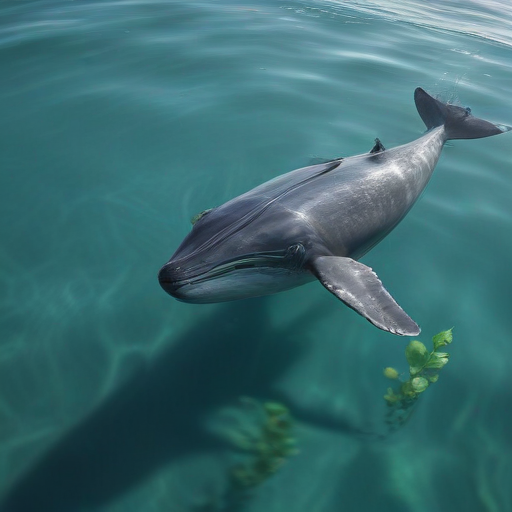The Rice’s whale, a critically endangered species, can breathe easier now that legislation that would have jeopardized its survival has been removed from consideration. This positive change follows the resignation of former Congressman Matt Gaetz, who had proposed a bill allowing military munitions testing in areas overlapping with the whales’ habitat in the Gulf of Mexico.
Gaetz resigned from his Congressional seat on November 14 after being nominated to serve as U.S. attorney general by President Donald Trump. However, shortly thereafter, he withdrew his name from consideration amidst controversy and officially stepped away from Congress. His proposed legislation, introduced in 2023, sought to permit the Air Force to conduct testing across a vast area of the Eastern Gulf Test and Training Range, which includes the limited habitat of the Rice’s whale in DeSoto Canyon, approximately 60 miles offshore.
Despite initial support in the House, the legislation did not make it into the final version of the National Defense Authorization Act (NDAA), which was passed by Congress in mid-December and signed into law by President Biden on Christmas Eve. Environmental groups, such as Defenders of Wildlife, were instrumental in opposing the bill, and they celebrated its removal as a significant victory for environmental protection.
Rice’s whale, which was only recognized as a distinct species in 2021, has seen its numbers decline significantly, particularly following events like the Deepwater Horizon Oil Spill. The whales find some sanctuary in the DeSoto Canyon, which mitigates the impacts of noise from shipping and oil drilling activities prevalent in other parts of the Gulf.
Eglin Air Force Base, located within the affected area, has shown commitment to environmental stewardship and has obtained an incidental take permit to safeguard the Rice’s whale until 2030. This includes specific measures to protect the species while balancing military testing needs, proving that conservation and defense can coexist effectively.
In summary, the current situation regarding the Rice’s whale reflects a hopeful outlook for conservation efforts, especially with ongoing measures by institutions like Eglin Air Force Base designed to protect this unique marine species while fulfilling their operational requirements. The future of the Rice’s whale may still hold promise, supported by a growing awareness and commitment to environmental protection from both governmental and nonprofit organizations.
